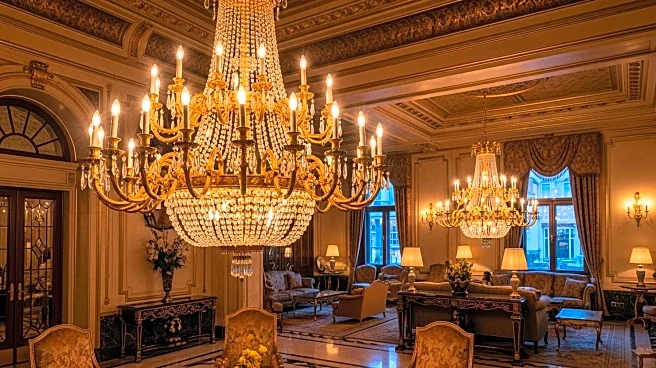What's Happening?
Interior designers are emphasizing the importance of strategic spending in hotel design projects, highlighting that impactful design does not necessarily require a large budget. The process involves setting clear priorities and working with experienced teams to maximize the value of each dollar spent. Designers are trained to work within financial constraints, using techniques such as visual audits to understand client preferences and translating them into actionable design strategies. The design process is divided into phases, each with budget implications, and requires careful planning to align budget and schedule. Operational expectations also play a crucial role in material selections and layout planning, impacting long-term maintenance costs and employee satisfaction.
Why It's Important?
The approach to strategic spending in hotel design is significant as it allows hotel owners to achieve memorable and functional designs without overspending. This method supports the hospitality industry's need for connection, experience, and authenticity, which are increasingly sought by guests. By focusing on strategic spending, hotels can enhance guest experiences while maintaining operational efficiency and cost-effectiveness. This approach also helps avoid costly missteps and ensures that design choices align with brand positioning and guest expectations. Ultimately, it contributes to the sustainability and longevity of hotel operations, providing value beyond the initial investment.
What's Next?
As the hospitality industry continues to evolve, designers and hotel owners are expected to focus on flexibility, longevity, and layered value in their projects. This involves anticipating shifts in travel behaviors, technology, and economic realities to shape guest experiences. Collaboration between designers, contractors, and vendors will be crucial in executing cost-conscious designs that tell a story and reflect a place. The industry will likely see more projects that prioritize strategic spending and creativity, ensuring that budgets are used effectively to create impactful and memorable hotel environments.
Beyond the Headlines
The emphasis on strategic spending in hotel design highlights the ethical and cultural dimensions of the industry, where creativity and collaboration are valued over financial extravagance. This approach encourages sustainable practices and supports the preservation of local culture and history through thoughtful design choices. It also reflects a shift towards more responsible and inclusive design practices that consider the long-term impact on communities and the environment.








